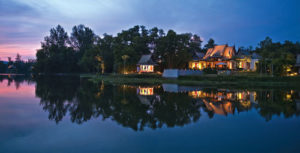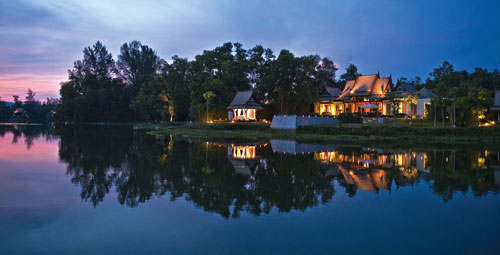PEEK INTO THE FUTURE: In this section, Raini Hamdi asks industry leaders to pen their thoughts on what the future will bring. Here is Ho Kwon Ping, executive chairman, Banyan Tree Holdings, on the future of integrated resorts

The biggest innovation in integrated resorts (IRs) since we opened Laguna Phuket 20 years ago is one that is government-led rather than private sector-driven. Singapore has demonstrated that a casino licence can be structured in such a way it fulfils a socially useful function and a tourism infrastructure development role.
The Singapore government essentially allowed two casino developers to enter, but negotiated the terms such that they also invest in other substantial enterprises they would not normally make. Thus, Resorts World Sentosa (RWS) had to cross-subsidise a Universal Studios theme park, which would otherwise not enter as it could not achieve high returns with such small scale. Marina Bay Sands (MBS) had to have a MICE facility and was used as the anchor for the redevelopment of the whole Marina Bay area.
The innovation thus is in the IR model than in the product. From a product/hospitality perspective MBS, while a fantastic architectural masterpiece, is a casino, 2,500-room hotel and convention centre – nothing too innovative there. Similarly RWS with its casino, theme park and hotels.
Developed country governments – top of mind being Australia and Japan – appear to be learning from the Singapore example. Australia previously issued only pure casino licences for small facilities, say Star in Darling Harbour Sydney or Jupiters in Queensland’s Gold Coast. But probably after seeing what Singapore has done, Queensland’s Gold Coast is issuing a casino licence to a China-backed developer – but with the condition it must develop a cruise centre (although there has been opposition from some quarters that massive dredging would destroy the biodiversity of the area).
As well, Queensland is redeveloping a state-owned land into an IR development, Queen’s Wharf Brisbane, but again stipulating a few other requirements for a casino licence.
This model would work in high income, high population areas, not in places that are remote. Singapore too is an integrated city, has a coherent masterplan for the next 20 years and, when it takes on a game-changing development, pulls all its best brains on it and takes a hands-on approach. Another country may insist on a cruise centre of a casino developer, but what point is that if it is hands-off afterwards? The developer might build a sub-standard terminal. Even if it builds a fantastic cruise centre, no cruise ships would call if the government does not build the roads and other infrastructure needed to accommodate cruise passengers.
Newly developing countries such as Cambodia, Vietnam and Sri Lanka which are said to be mulling casinos may be better off doing the classic IR. But buying power for property sales is a precondition, since infrastructure services such as security, landscaping, golf and recreation are all paid for by the residents who value the community they live in. And when these services are integrated, for example, when there is inter-hotel billing, inter-hotel transport and integrated destination marketing, only then is there a ‘real’ integrated resort.
Laguna Phuket, for instance, offers free use of inter-resort transportation via shuttle buses and lagoon boats, a choice of over 30 restaurants and bars, one centralised billing system allowing signing privileges at all hotels, and access to a wide spectrum of sports and recreation facilities through a day pass. It also focuses on environmental conservation through shared ancillary services such as laundry, water treatment and maintenance.
I have not seen any others like it besides our own projects in Bintan and now, Vietnam. I don’t consider upcoming developments in Lombok or Johor to be integrated resorts – they are basically a masterplan of land sale sites. There is no integration in the way I define it. Even Nusa Dua in Bali is not an integrated resort
because other than selling plots of land to different investors to build hotels, there is no integration of any services.
Thus, nothing much has changed apart from the innovation in forcing casinos to play a more socially useful role.
That – and the loose use of the term ‘IR’.
By Ho Kwon Ping, executive chairman, Banyan Tree Holdings
This article was first published in TTG Asia, August 8, 2014 issue, on page 10. To read more, please view our digital edition or click here to subscribe.




















